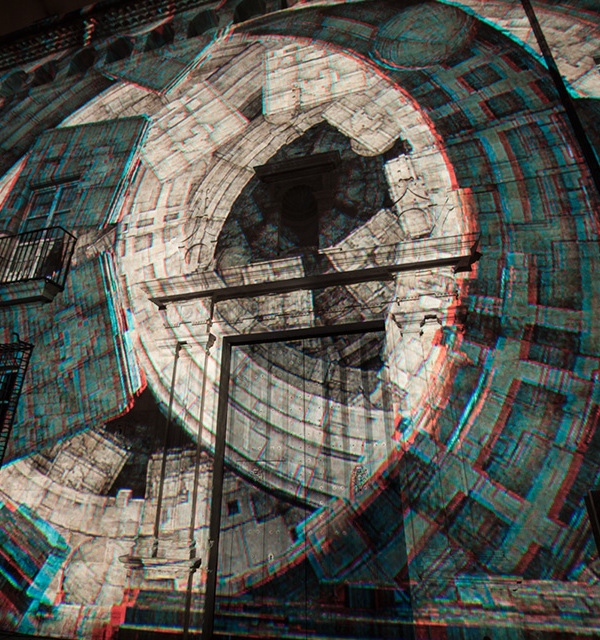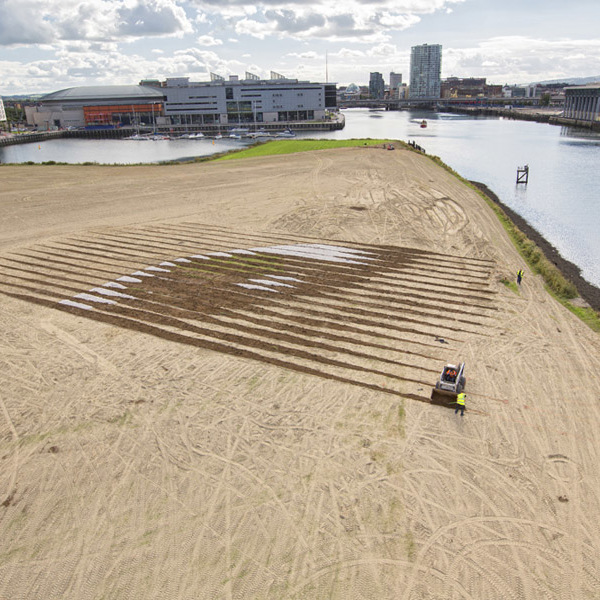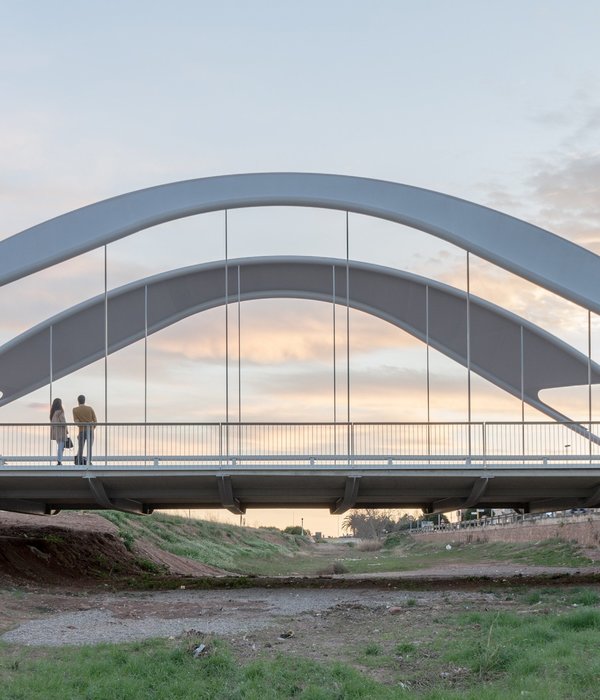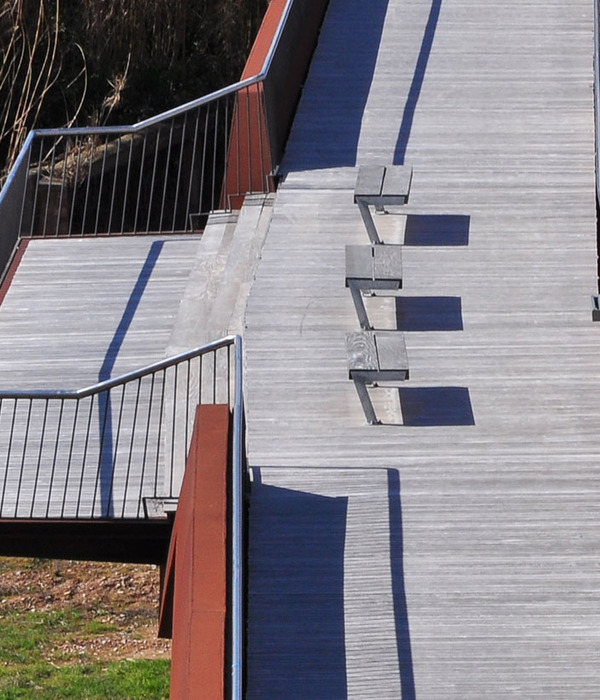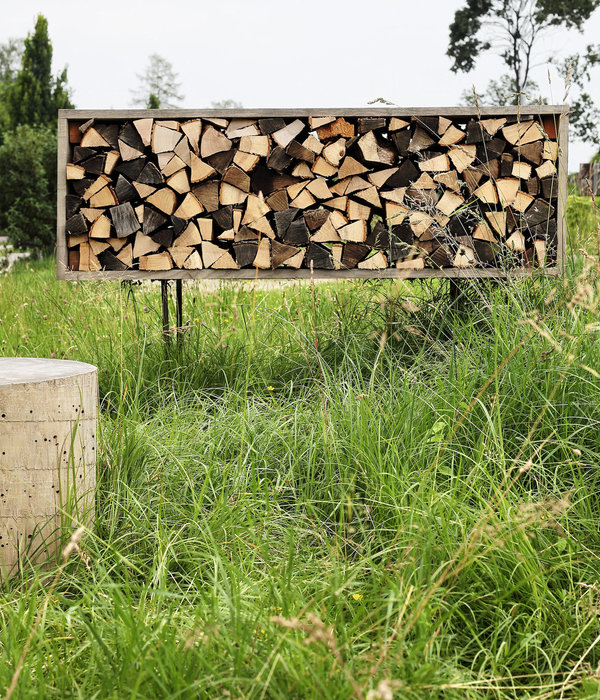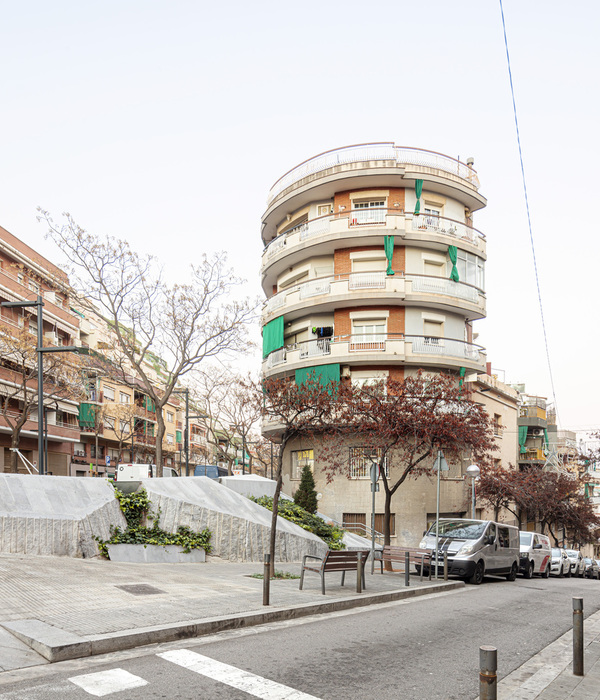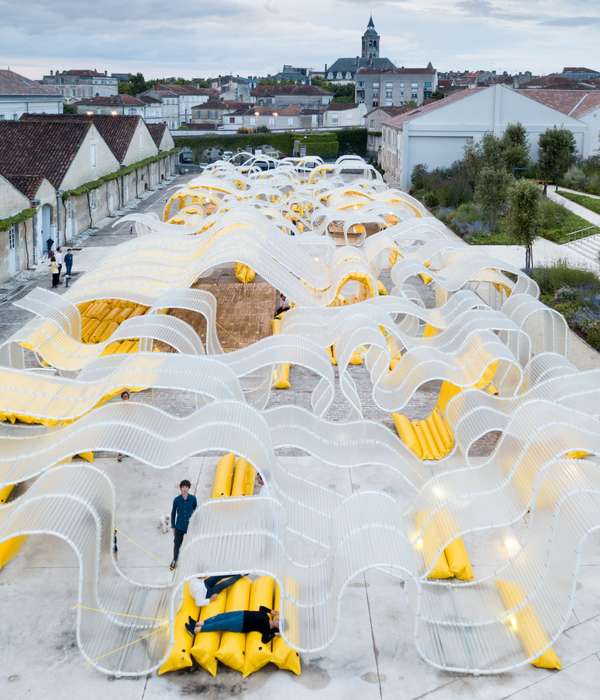The district of Kolomna, where many of Dostoevsky’s novels are set, is one of the oldest — and, probably, the most distinctive — in St. Petersburg. The Nikolsky Rows is a brilliant example of a gostiny dvor, a very distinctive Russian building type combining a shopping arcade and an inner courtyard used as an open market and storage and maintenance area. The building fell into disrepair and was then restored. However, until the present day, it failed to become an active city space in its own right. The former arcade now houses a hotel, while the market courtyard remained inaccessible to the public. We created a small architectural landmark to trigger the return to life for this historically vibrant location.
The project concept is, first and foremost, a contemplation of the environment, where everything is fleeting and even the most sacred objects alter their course with great ease. It is an allegory of the search for the unique ‘Russian way’: a paradoxical combination of the yearning for development and the eternal fear of change. It is an attempt to reinterpret and provide a new understanding of one of the most established architectural forms.
Last, but not least, it is a very functional object: a carousel. It was important for us to find a special and lyrical tone that would express the paradox and contradiction within the environment. In the Nikolsky Rows, the concept is fully materialized. The new arch holds the central place among the endless courtyard arcades, serving as a symbol of future change. The new public space is looking to find a place of its own in the cultural landscape of the city, a place that would let it maintain its own unique identity.
The Triumphal Arch is now a big favourite with the children: it is, in fact, so popular that it goes round and round for days. A child can easily rotate the five-metre-high structure and even give a ride to her parents. The look of the Triumphal Arch accentuates its contextuality: its proportions, graphics, tectonics, and texture reinterpret a typical arcade archway. Wood, a natural material, emphasizes the respectful attitude towards the space of the historic architectural monument. Most of the arch is made of 50mm x 50mm timber blocks. A pivot mechanism, 650 mm in diameter, welded onto a metal base provides for smooth and effortless rotation.
{{item.text_origin}}


